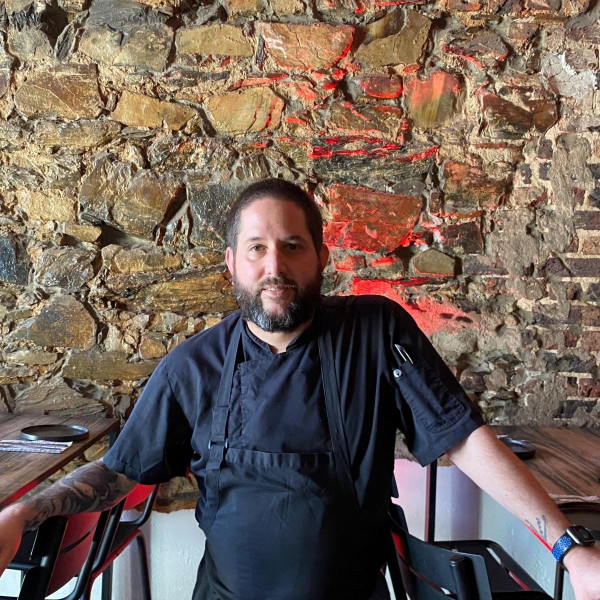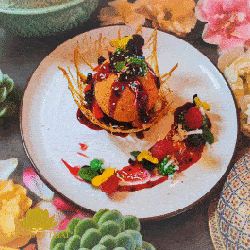News
A Collection Of Restaurant, Food, Drink And Hospitality News From All Over South Africa
Mastering The Art Of Culinary Leadership: An Interview With Chef Asher Abramowitz
29 April 2025
In the ever-evolving world of gastronomy, an Executive Chef is more than just a master of flavours—they are visionaries, strategists, and leaders who define a restaurant group’s identity. We sat down with Chef Asher, the newly appointed Executive Chef of The Pan Collection Hospitality Group, to talk about his journey, philosophy, and what’s next.
Q: Let’s start with your story. What inspired you to pursue a career in the culinary world?
My father, he is a dentist by trade, but has always had a passion for food. When I finished school I almost immediately started waitering and quite quickly decided that I wanted to continue in the industry, but was more interested in the kitchen than I was being on the floor. I went to do a 3 year apprenticeship at the Mount Nelson, the rest is very ancient history.
Q: You’ve worked in a variety of kitchens throughout your career. What have been the most defining moments for you as a chef?
My first head chef role is probably the first great milestone, it was for a gastropub in Notting Hill called The Mall Tavern. The second would be realising how this industry would allow me to travel all over the world and work anywhere.
Q: What excites you most about joining The Pan Collection?
The variety of different restaurants and people I work with on any given day. The growth within the group is also very exciting.
Q: With multiple restaurants under your leadership, how do you maintain consistency in quality and innovation across all locations?
Through proper training and having people in the right positions in the right restaurants.
Q: Our readers love to hear about culinary inspiration. How do you approach menu development? Do you lean more on tradition or innovation?
This depends on the menu and the dish. With the new restaurant we are opening, there are a lot of traditional recipes that we have updated slightly, but if we stray too far from the original we won’t be meeting guests' expectations, and that’s a problem if it’s a traditional dish that guests know and grew up with.
When creating a restaurant concept from the ground up, the first thing to do is work out the concept of the restaurant and the menu grows from that.
Q: Every chef has their signature dish. If you had to pick one that defines your style, what would it be and why?
I have always felt that a chef doesn’t decide what his signature dish is, the public does. The best way I can answer this question is what I enjoy cooking the most.
I love cooking over charcoal and smoking foods low and slow. I have done a lot of charcuterie and butchery work and I love it. Few things are as satisfying as breaking down a whole animal and using every bit to create something delicious.
Q: What trends do you see shaping the future of the dining industry, and how do you plan to integrate them into your restaurants?
Most people won’t like to hear it, but I see the future of food being insects. We are destroying the planet at an ever-increasing rate and I think insects will be an integral part of where humans get their required protein. They take up less space and require far less resources than conventional animal factory farming, so will become an essential part of our diet in a few decades.
Yatai Ramenbar
Cape Town Central, Western Cape Asian, Japanese, Seafood, Vegan, Vegetarian
Introducing Yatai Ramenbar - Where the vibrant essence of Japanese street food meets refined dining, blending simplicity and complexity in perfect harmony. Located below Nikkei on Cape Town&rsq...











